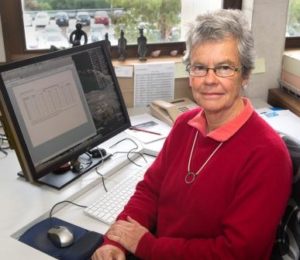
“I think Australia has done reasonably well in offsetting some of the forces of inequality but there is a lot of evidence that suggests that more recently we are going in the wrong direction.”
Flinders University economist and Principal Research Fellow of the National Institute of Labour Studies Professor Sue Richardson doesn’t mince her words when asked for her personal thoughts on the current state of the Australian labour market.
“An Australian research group recently said we have to reduce wages in order to prevent a decline in our standard of living,” she adds.
“I think that is like saying we have to kill the patient in order to save them.”
Professor Richardson is an engaging 67-year-old with impeccable credentials and decades of experience and public service as one of Australia’s most prominent researchers and advisers on the Australian labour market.
“There’s a very important idea that says you can never create an equal distribution of access in all important domains of wellbeing, but your position in one domain shouldn’t determine where you stand on the others.
“In the old class based system, access to quality housing, good jobs, education and health care was determined by your class. In Australia today it is increasingly determined by your income,” she says.
“If having a higher income simply meant you could go on more holidays and drink more expensive wine, then we wouldn’t care very much about how equally or otherwise it is distributed, but when it’s the difference between lifesaving health care or a quality education, then we should care a lot.
“A more equal society is one where you can compress income distribution and also reduce the relationship between income and the other things that matter to a good quality of life
“Each individual distribution matters. Money matters. Education matters. Health matters. Job opportunities matter. ”
Having spent decades working within the education sector, it’s not surprising that Professor Richardson is particularly concerned about young people’s prospects.
She says Australia should endeavour to protect all of its children from the “forces for inequality” which could deny them universal access to a quality education, healthcare and the other “things that matter”.
“You can choose to moderate or amplify those forces for inequality,” she says. “A fair world in my view is one in which a child’s prospects are not determined by who their parents are.
“My preferred public policy would be for Australia to place a very high priority on the wellbeing of every child in the broad sense.
“That means doing everything from investing in a quality education for all children starting at pre-school, to doing all we can to reduce the abuse of children, to protecting the environment that we’re passing on to them.
“Unfortunately, Australia is one of the few OECD countries which does not have a growing public contribution to its public education system.
“Instead we have a heavy investment in private schools, which is divisive socially and economically.”
Professor Richardson says she is also concerned about moves within Australia to emulate the US’s economy and labour market practices.
“I think the current government is looking to the US as an example of how we can be doing things better but I think that’s exactly how we shouldn’t be doing it,” she says.
“I’m a pragmatist, and the broader outcomes of their health system, education system and labour market are all inferior to Australia’s.
“I think the question we have to ask ourselves is, if we do copy the US, who is going to benefit?
“All of the gains in the US have gone to the top few per cent for decades, and the average US male worker is no better off than he was in the 1970s.
“There’s even an interesting debate going on in parts of the US about how Australia can have a minimum wage twice that of America and still have better labour market outcomes.”
It is put to Professor Richardson that perhaps the wealthy should be entitled to receive better healthcare and education for their children because they have worked hard to earn that right.
Again, she does not mince her words.
“The notion that wealth is a reliable indicator of how hard someone has worked is nonsense,” she says. “There are many people who work hard who will never be wealthy.
“A lot of wealth is acquired by luck, and people can also become wealthy through immoral, if not necessarily illegal, behaviour.”
Professor Sue Richardson, AM, is a Matthew Flinders Distinguished Professor at Flinders University and Principal Research Fellow of the National Institute of Labour Studies (NILS). She also has a five-year term as a member of the Fair Work Commission’s Minimum Wage Panel. She was Director of NILS from 2000-08. Before that she worked in the School of Economics at the University of Adelaide. She is a board member of the Australian Centre for Child Protection. She was President of the Academy of the Social Sciences in Australia from 2003-06; was a member of the National Sustainability Council until its abolition in 2013, a Commissioner of the Essential Services Commission of SA from 2004-2009; has been a member of the Board of the Council for Humanities, Arts and Social Sciences; the National Academies Forum, the SA Population Advisory Committee, the ABS expert committee on measuring Australia’s progress, and the Information Economy Advisory Board; a part-time Commissioner with the Industry Commission; Convener of the Academic Board and a member of the Council of the University of Adelaide and of its Finance Committee; a member of the Rhodes Scholarship selection committee; a member of the Ministerial Inquiry into Skills in South Australia; and a co-editor of the Economic Record.

